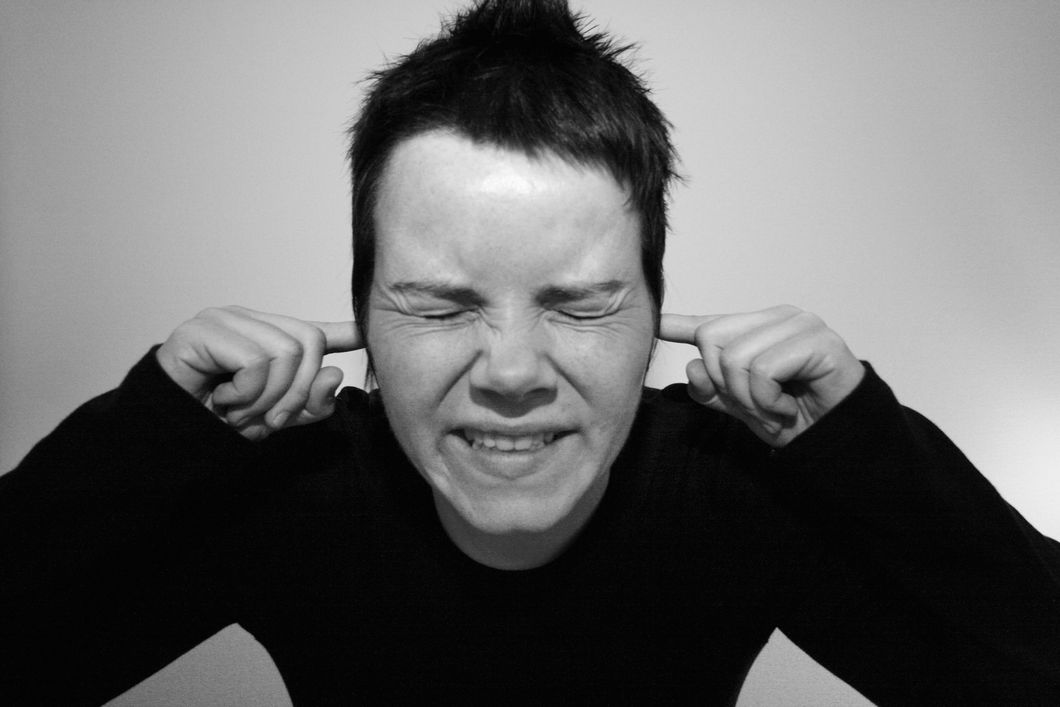This week, I'm going to start my post with some dictionary definitions just to make sure we're both on the same page. (Get it? Because you have to flip to the right page in the dictionary and...OK I'll stop.)
Angry (adjective)
Feeling of or showing anger
Trigger (verb)
To cause a strong emotional reaction of fear, shock, anger, or worry in someone, especially because they are made to remember something bad that has happened in the past
You aren't "triggered" when you lose in a video game. You aren't "triggered" when somebody says a racial slur. You aren't triggered, period, unless you've experienced trauma and something causes you to flash back to it.
Trauma, by definition, encompasses extraordinary experiences that do NOT occur to most of the human population. It goes deeper than the normal ups and downs of life, so no we haven't "all been there" or "had those days." Chances are if you need the meaning of triggered explained to you, it doesn't apply to you.
Yet, somehow, I see people stealing yet another word that doesn't belong to them to describe things they already have words for because they want to sound unique. Or whatever it is that motivates people to use clinical terms colloquially. As if they even have a basic grasp of what those words mean and the people they apply to don't experience further stigmatization and misunderstanding as a result.
News flash, folks. Words impact people's lives. It should only be expected in a society so obsessed with labeling everything you can put your finger on.
When you use "bipolar" to describe your moody friend, nobody takes bipolar disorder seriously. When you use "psycho" to describe the murderers you hear about in the evening news, people learn to fear those with schizophrenia. When you use "OCD" to describe your cleanliness or penchant for washing your hands, you throw dirt in the faces of those whose obsessions consume their entire life.
When you use "triggered" to describe your feelings, you taunt people like me who have endured hardships most can't even comprehend. Now, you know the dictionary definition of triggered and why you shouldn't use it colloquially, but you don't know what it's like to experience a trigger. I'm going to explain that too so you can't possibly mistake it.
When I was a child, I was bullied in every way that existed at the time; physically, mentally, sexually, you name it. Which meant I have plenty of trauma lying underneath the surface just waiting to be called back into reality. Luckily, its decreased in size over the years as I've recovered, but it isn't completely gone.
I still try to be cautious -- not as cautious as I used to have to be, thankfully -- but sometimes I get caught off guard. For example, some time last year I went to pay my health psychology professor a visit during his office hours. I wanted to look over a test I took to see what questions I got wrong so I could figure out how to improve for next time.
Everything was going fine until something seemingly mundane happened. I was sitting in one of his chairs looking over the test, my professor got up from his chair and walked over to the bookcase which was behind me. My face began growing hot, I stopped breathing, my hands balled into fists, and I froze.
Then this thought ran through my head: "What if he hits me?" I began imagining my professor hitting me, me running out of the room screaming, and begging the front desk receptionist to protect me. I thought I was going to have a panic attack right there and then, but my professor found the book he wanted and walked away.
Immediately, my body and mind relaxed. After talking to my psychologist about this incident, we figured out that I get triggered when I'm sitting in a chair and someone is standing very close to me. It stems from when I was in third grade and one of the bullies took to hitting me in the head every time she passed by me.
I was sitting at my desk, she would walk over to me, stand near my right or left ear, and crack! No clue how my teacher never noticed it tbh.
Once I figure out I had this trigger, it became weaker over time. I haven't had a situation like that one happen in a while, so I'm not completely sure of its strength at the moment, but now you know. Big difference between getting angry/offended and flashing back to the time your "best friend" slapped you silly.
I know the tone of this post is a lot more aggressive than my usual ones, but I see too many people handling this issue lightly. For those of you who don't use clinical terms colloquially, you're doing great sweetie.
P.S. Just so we're clear, I don't care if you ravage the comments in this post with your toxicity and ignorance. It'll only further prove my point that people who use clinical terms colloquially don't care about people with mental illnesses one bit.
















